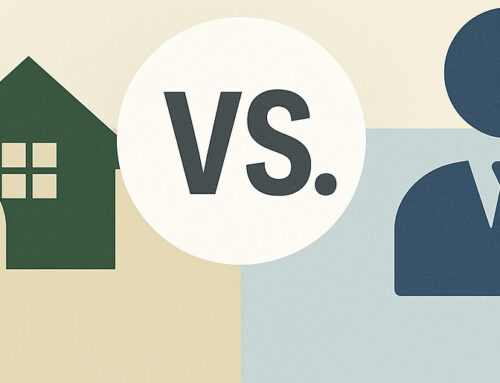Understanding what does hurricane insurance cover vs. what it doesn’t can mean the difference between financial security and devastating out-of-pocket expenses after a major storm hits Florida. Last year alone, Hurricane Ian caused over $112 billion in damages across the state, leaving thousands of homeowners shocked to discover significant gaps in their coverage. Many assumed their standard homeowners policy would protect them from all hurricane-related losses, only to learn that crucial damages like flood and storm surge weren’t included.
As certified public adjusters at American Premier Claim Consultants, we’ve helped Florida residents navigate complex hurricane claims for years. This comprehensive guide will clarify exactly what your hurricane insurance covers, reveal common coverage gaps, and show you how to protect your home and financial future from storm-related devastation.
Understanding Florida Hurricane Insurance Basics
Florida hurricane insurance involves multiple coverage types working together, not a single comprehensive policy. Your protection typically comes from three main sources: standard homeowners insurance for wind damage, separate federal flood insurance, and additional living expense coverage.
The Sunshine State’s unique insurance landscape makes coverage more complex than in other regions. Citizens Property Insurance Corporation serves as the state’s insurer of last resort, while private insurers have increasingly limited their exposure to hurricane risks. Recent legislative changes in 2023-2025 have also modified coverage requirements, particularly around roof damage and deductibles.
Hurricane deductibles in Florida operate differently from standard deductibles. Instead of a flat dollar amount, most policies use percentage-based deductibles ranging from 2% to 10% of your home’s insured value. These special deductibles typically apply to all hurricane-related damage during a single storm event, regardless of how many separate claims you file.
What Hurricane Insurance DOES Cover in Florida
Wind Damage: Your Primary Storm Protection
Hurricane insurance covers wind damage to your home’s structure, roof, windows, and personal property caused by hurricane-force winds typically exceeding 74 mph. This includes roof shingles torn away by powerful gusts, windows shattered by windborne debris, and siding damaged by flying objects during the storm.
Your dwelling coverage extends to structural elements like framing, built-in appliances, and permanently attached fixtures. When wind-driven rain enters through wind-damaged openings (like a hole torn in your roof), the resulting interior damage is typically covered under your policy.
Personal Property and Additional Structures
Covered personal belongings include furniture, electronics, clothing, and household items damaged by qualifying wind events. Detached structures like garages, tool sheds, and fences also receive protection under most Florida homeowners policies, though coverage limits may apply.
Additional Living Expenses During Displacement
If hurricane damage makes your home temporarily uninhabitable, additional living expense coverage pays for hotel stays, increased meal costs, and storage fees for your belongings. This coverage typically lasts until your home is repaired or you reach your policy’s time or dollar limits, whichever comes first.
Emergency Repairs and Mitigation
Your policy generally covers immediate protective measures like emergency tarping, board-up services, and water extraction from wind-driven rain damage. Tree removal is covered when fallen trees damage covered structures, though removal from undamaged areas typically isn’t included.
What Hurricane Insurance DOESN’T Cover in Florida
Flood Damage: The Critical Coverage Gap
Standard homeowners insurance excludes all flood damage, including storm surge, coastal flooding, and rainfall accumulation that reaches your property from ground level. This represents the most significant coverage gap for Florida homeowners, as hurricanes often cause more flood damage than wind damage.
Storm surge from hurricanes can penetrate miles inland, affecting properties never previously flooded. Even homes outside designated flood zones can experience devastating surge damage during major hurricanes like Ian or Michael.
Earth Movement and Ground Conditions
Earthquake damage, sinkholes, erosion, and ground shifting are excluded from standard hurricane coverage. If hurricane-force winds cause a tree to uproot and create ground instability, the tree removal might be covered, but repairing the resulting ground damage typically isn’t.
Pre-existing Conditions and Maintenance Issues
Damage from pre-existing roof leaks, structural problems, or deferred maintenance won’t be covered, even if a hurricane exacerbates these conditions. Insurance policies are designed to cover sudden, accidental damage rather than ongoing deterioration or maintenance failures.
Mold growth is typically excluded unless it results directly from covered wind or hail damage and occurs within a specific timeframe after the loss.
High-Value Items and Special Property
Standard policies limit coverage for jewelry, artwork, collectibles, and business equipment to relatively small amounts, often $1,000-$2,500 per category. Vehicles, boats, and swimming pools require separate coverage and aren’t protected under homeowners policies.


Common Hurricane Insurance Misconceptions
“My Policy Covers All Hurricane Damage”
This dangerous misconception has cost Florida homeowners millions in unexpected expenses. While your homeowners insurance covers wind damage, it won’t pay for flood damage, which often represents the majority of hurricane losses in coastal areas.
“Wind-Driven Rain is Always Covered”
Wind-driven rain coverage only applies when rain enters through wind-damaged openings in your home’s exterior like torn roofing or broken windows. Rain entering through doors, windows, or other openings that weren’t damaged by wind typically isn’t covered.
“I Don’t Need Flood Insurance”
Even properties outside high-risk flood zones can experience devastating hurricane flooding. Storm surge, rainfall flooding, and overwhelmed drainage systems can affect any Florida property during major hurricanes.
Preparing for Hurricane Insurance Claims
Pre-Storm Documentation
Create a comprehensive home inventory with photos and videos of your property’s condition before hurricane season begins. Document your home’s exterior, interior, and personal belongings from multiple angles. Store this documentation in cloud storage or off-site locations for easy access after a storm.
Post-Storm Documentation Best Practices
Immediately after it’s safe, photograph all damage before making any temporary repairs to prevent further loss. Document the damage’s cause (wind vs. water) and take wide-angle shots showing the full scope of destruction, plus close-up details of specific damage.
Contact your insurance company promptly to report your claim, but don’t rely solely on their adjuster’s assessment. Insurance company adjusters work for the insurer, not for you, and may not identify all covered damage or may undervalue your losses.
When to Call a Florida Public Adjuster
Red Flags Requiring Professional Help
If your insurance company delays processing your claim, offers a settlement that seems inadequate, or denies coverage you believe should apply, consider hiring a public adjuster. Complex damage scenarios involving both wind and water damage often require professional expertise to maximize your settlement.
Public adjusters work exclusively for policyholders, conducting independent damage assessments and negotiating directly with insurance companies on your behalf. They handle all paperwork, deadlines, and communications, allowing you to focus on rebuilding your life.
The Financial Benefits of Professional Representation
Studies show that policyholders represented by public adjusters receive settlements averaging 574% higher than those who handle claims themselves. Even after paying the adjuster’s fee (typically 10-20% of the settlement), most clients receive significantly more money than they would have negotiated alone.
At American Premier Claim Consultants, we operate on a contingency basis—you pay nothing unless we successfully increase your settlement. Our team of certified public adjusters has helped Florida homeowners recover millions in rightful insurance claims following major hurricanes.
Recent Changes to Florida Hurricane Coverage
New Florida legislation has modified roof coverage requirements and claim handling procedures effective 2024-2025. Some insurers now require roof inspections for policies on homes with roofs over 15 years old, and certain coverage restrictions apply to older roofing materials.
The private insurance market continues consolidating, with several major insurers reducing their Florida exposure or exiting the market entirely. This has led to increased reliance on Citizens Property Insurance and higher premiums across the state.
Key Takeaways: Protecting Your Florida Home
- Standard homeowners insurance covers wind damage but excludes flood damage – the most critical coverage gap
- Hurricane deductibles are percentage-based and typically range from 2-10% of your home’s insured value
- Wind-driven rain is only covered when it enters through wind-damaged openings in your home’s exterior
- Additional living expenses help with temporary housing while your home is being repaired
- Flood insurance requires a separate policy with a 30-day waiting period, so don’t wait until a storm approaches
- Pre-storm documentation is crucial for proving the extent of your losses
- Public adjusters can significantly increase your settlement amount, especially for complex claims
- Recent legislative changes have modified coverage requirements and claim procedures
Protect Your Investment with Professional Guidance
Understanding what does hurricane insurance cover vs. what it doesn’t is essential for every Florida homeowner, but navigating actual claims requires expertise most homeowners don’t possess. Insurance companies have teams of professionals working to minimize their payouts, and you deserve equally skilled representation protecting your interests.
Don’t let coverage gaps or insurance company tactics cost you thousands after the next major storm. If you’ve experienced hurricane damage or want to ensure you’re properly protected before the next hurricane season, contact American Premier Claim Consultants today for a free consultation.
Call 1-844-313-3155 or request help online for your free consultation.
Remember: We don’t get paid unless you do.







